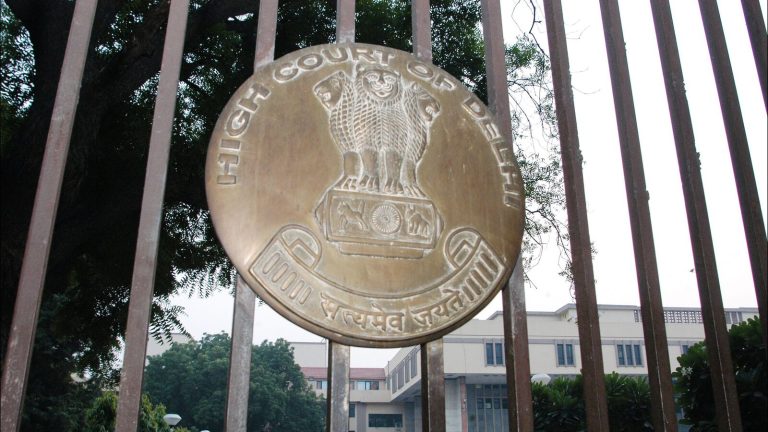In another legal setback for Gensol Engineering Ltd and electric ride-hailing startup BluSmart, the Delhi high court on Wednesday barred the companies from creating third-party rights over 220 additional electric vehicles (EVs) leased from two separate lessors.
Justice Jyoti Singh issued the order while appointing court receivers to take possession of the vehicles. However, the court denied the lessors’ request for repossession, stating that such relief does not fall within the ambit of Section 9 of the Arbitration and Conciliation Act, 1996, under which the petitions were filed.
The court also directed Gensol to submit a status report on the leased EVs within two days after the lessors raised concerns about the vehicles’ whereabouts. Additionally, Gensol and BluSmart were asked to provide a comprehensive statement of their assets and liabilities.
Read this | Gensol promoters lose over half of their ownership
The order follows petitions by SMAS Auto Leasing India Pvt. Ltd and Shefasteq OPC Pvt. Ltd, which accused Gensol, BluSmart, and their promoters of breaching lease agreements and failing to pay dues.
According to court documents reviewed by Mint, SMAS Auto had leased 164 EVs to Gensol and 46 to BluSmart under separate master lease agreements. Shefasteq claimed it had leased an additional 10 EVs. Both lessors alleged that the companies failed to make timely payments for lease rentals and fleet management charges, despite receiving monthly invoices and having binding contractual obligations.
“The continued unauthorized possession of the EVs by the respondents is unlawful and has constrained the petitioner to seek, inter alia, the immediate appointment of a Receiver for taking custody and possession of the said EVs, with a view to preserving and maintaining them in a commercially viable and operable condition,” the SMAS plea stated.
It emphasized that EV batteries are sensitive and perishable assets that require regular monitoring and sustained operational use—particularly in extreme heat—to prevent irreversible damage.
Wednesday’s order marks the third ruling by the same bench in under two weeks.
On 25 April, Justice Singh had restrained the companies from creating third-party rights over 175 EVs leased by Japanese financial services firm Orix. Then, on 29 April, the court barred BluSmart from selling or transferring 95 EVs leased by Clime Finance Pvt Ltd.
With the latest order, a total of 493 leased electric vehicles are now under judicial protection, barring Gensol and BluSmart from selling, transferring, or assigning third-party rights over them.
“The court order safeguards the interests of fleet leasing companies by mandating that Gensol disclose to the court and the lessors the current locations and operational status of the leased electric vehicles,” said Aditya Bhattacharya, litigation partner at King Stubb and Kasiva and counsel for SMAS Leasing.
“The ruling explicitly underscores the critical importance of battery conditions and proper handling practices, which are essential to the effective operation and maintenance of such vehicles,” Bhattacharya added.
Financial and regulatory challenges
The latest court order comes amid increasing regulatory scrutiny of the companies.
The Securities and Exchange Board of India (Sebi) recently issued a show-cause notice to Gensol and its promoters for alleged governance lapses, including undisclosed related-party transactions and financial irregularities.
Read this | ₹262-crore gap for more than a year?”>How did Gensol’s lenders miss a ₹262-crore gap for more than a year?
The regulator also barred the Jaggi brothers from holding key managerial roles in any listed company and prohibited Gensol and its promoters from accessing capital markets.
Gensol is also facing inquiries over the handling of approximately ₹978 crore in loans from Power Finance Corp. (PFC) and the Indian Renewable Energy Development Agency (Ireda), intended for the purchase of 6,400 EVs. Disclosures indicate that only 4,704 vehicles were actually procured.
PFC has lodged a complaint with the Economic Offences Wing of the Delhi Police, alleging the use of falsified documents to secure the loans. Ireda, which reportedly funded 3,400 EVs, may be short by over 1,400 vehicles based on current filings.
As previously reported by Mint, PFC is considering legal actions, including insolvency proceedings and debt recovery tribunal filings, to recover dues.
Also read | Gensol won many PSU contracts. Here’s what happens to them
Meanwhile, BluSmart has temporarily shut down its app, informing users that ride bookings will be paused until 7 May. The company has also promised refunds within 90 days if the suspension continues beyond that date.



